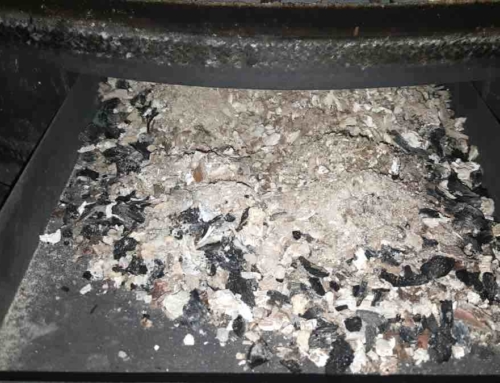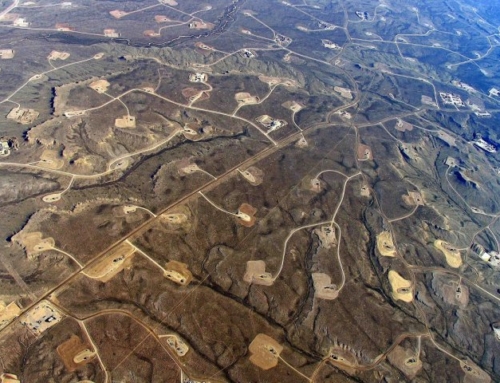Wetland and Aquatic option students see footnote 3A. 2A Students following the Forest Ecosystems option must take SFR 407, 408, and 409 to fulfill their Ecosystems requirement. School - School of Biology and Ecology - University of Maine Graduate Research Assistantship (Ph.D.) in Human Dimensions in Financialization of Forest Lands (co-advised with Dr. John Daigle) Only students in the Ecosystem Ecology Marine Ecosystem Option take SMS 230. Students are admitted to these graduate programs based on the strength of their academic records, GRE scores . The student should prepare a brief proposal for the concentration, including a narrative explaining the organizing concept for the concentration and proposed name. A final copy must be submitted to the Department Chair for filing with the students program of study. The curriculum for the B.S. 1B Students following the Sustainability Concentration can take ECO 381 to satisfy their ethics requirement or a concentration elective, but the course cannot satisfy both requirements. If the student no longer is supported by an assistantship and is not a Maine resident, the charge for the six credits to the student will be assessed at the out-of-state rate. Erik J. Blomberg, Ph.D. (University of Nevada, 2012), Associate Professor. The Wildlife Ecology curriculum plus a concentration in Wildlife Science and Management qualifies students to meet professional certification requirements of The Wildlife Society. At a minimum, a concentration will entail at least 21 credits of course work with at least 15 credits being 300 or 400 level (Junior or Senior) courses. 6C Only students in the Ecosystems Ecology - Forest Ecosystems Concentration take SFR 446. An undergraduate degree in wildlife ecology or biology or a closely-related discipline is generally required. To facilitate meaningful reading of the thesis, an approved draft of the thesis must be to the committee at least three weeks prior to the date the thesis is due to the Graduate School. Graduate Coordinator: Christine Beitl, Associate Professor of Anthropology, 5773 South Stevens Hall, Room 228A, (207) 581-1893, christine.beitl@maine.edu . Javascript is currently not supported, or is disabled by this browser. The faculty advisor is the primary supervisor of a graduate student during their program. Our program combines an experienced and enthusiastic faculty, modern research facilities, cutting edge research, and excellent opportunities for fieldwork. College of Education and Human Development, College of Natural Sciences, Forestry, and Agriculture, Maine College of Engineering and Computing, Experiential Programs Innovation Central (EPIC), Coordinated Operating Research Entities (CORE), Advanced Research Computing, Security, and Information Management, Office of Strategic Partnerships, Innovation, Resources and Engagement, Frequently Asked Questions (FAQs) and Contact Form. Although the admission requirements to the EES program are not the same as for our Economics graduate programs, most EES students advised through the School of Economics have achieved the same admission requirements as our Economics programs (required for EES students seeking funding). Joseph D. Zydlewski, Ph.D. (University of Massachusetts, 1998), Professor and Assistant Leader-Fisheries, Maine Cooperative Fish and Wildlife Research Unit. Faculty & Staff Resources Contact SFR Current Open Assistantships Completed Application Deadline to be considered for School of Forest Resources Graduate Assistantships is JANUARY 15th. Human dimensions of natural resources, environmental policy, sustainability science. in Wildlife Ecology (thesis) Master of Wildlife Conservation (non-thesis) Admissions. Master of Social Work (MSW) M.S. The intent of the Environmental Earth and Climate Sciences concentration is to provide flexibility to pursue courses related to the environmental earth and climate sciences that meet individual student interests. For well-qualified seniors, graduate courses may also be used with the approval of the advisor and the course instructor. An individualized concentration must be approved by the students academic advisor, the Undergraduate Coordinator, and the Director. Welcome Welcome to the Ecology and Environmental Sciences Program (EES) at the University of Maine. Applications for the Master of Wildlife Conservation program are reviewed from January through March for programs that begin in September. UMaine is in beautiful central Maine with an excellent quality of life (little traffic, reasonable cost of living, safe neighborhoods). 4C Students in Ecosystems Ecology Forest Ecosystems Option must take SFR 205, 5C Students choose PHI 232 (fall or spring course) or ECO 381 (fall course). The BS in Ecology and Environmental Sciences is designed to acquaint students with the scope and characteristics of our natural resources and to introduce the scientific and economic principles that govern resource use, sustainability, and conservation. Available assistantships are posted on the Department web page. Students work with an academic advisor to choose the combination of concentration courses that best meets the students academic goals. Learn More Minimum Grade requirements for courses to count toward major: Grade of C or better in MAT 122 or MAT 116, or a C- in MAT 126, and Grade of C- in WLE 200 and WLE 201 or SMS 300 or BIO 319 needed to progress to WLE 220. Students interested in employment opportunities in different fields are advised to discuss course selections with faculty in those fields. Ecology & Environmental Sciences Program. This curriculum allows students to meet the requirements for professional certification by the American Fisheries Society. 1C BIO 200 required for all concentrations except for Earth and Environmental Sciences and Sustainability. Research may be conducted in such areas as terrestrial and aquatic ecology, fisheries, physiology, behavior, population dynamics, resource management, and the influence of environmental disturbances. Conservation biology, forest wildlife management, landscape ecology, international conservation. Students majoring in Wildlife Ecology are expected to use their electives to develop an area of specialization. BIO 319 is offered in the spring. VII. Application deadline: January 15 / November 1, Program Website: Ecology and Environmental Sciences. A minimum grade of C is required for EES 489. Grade of C- or better in WLE 220 to progress to WLE 250. UMaine Cooperative Extension Reposted July 18, 2023 As part of its core mission to enhance the research environment, the Office of Research Development (ORD) offers professional development workshops and training programs tailored to meet the needs of University of Maine System (UMS) faculty, staff, and graduate students. Six Ecology and Environmental Sciences concentrations allow a student to pursue a particular aspect of natural resources in depth with an eye toward future employment or postgraduate study. Location: The University of Maine Orono campus is a community of ~12,000 undergraduate and graduate students. Must take a minimum of one or two courses in each of these three areas (Economics, Social, and Resource Management/Policy/Ecology). Courses taken as part of the core curriculum cannot be counted towards concentration requirements. The Department of Wildlife, Fisheries, and Conservation Biology, College of Natural Sciences, Forestry, and Agriculture offers graduate study leading to a Master of Science in Wildlife Ecology, a non-thesis Master of Wildlife Conservation, and a Doctoral degree in Wildlife Ecology. Portland Press Herald interviews Angela Mech, lab staff and students about research on curtailing browntail moths in Maine; Ph.D. student and Maine Big Night founder Greg LeClair wins award from National Wildlife Federation; Danielle Levesque and students participate in a mini-expedition in Borneo; More Of the 10 schools ranked on this page, tuition for online public administration degrees ranges from $117 per credit at Indian River State College to $550 per credit at Park University. All candidates are expected to participate in professional and Departmental activities. Students are expected to select their graduate committee before the research proposal is finalized. Bangor, Maine, United States 20 followers 20 connections Join to view. Students will receive feedback (oral, written, or both) from the committee. Students should meet with the graduate committee for this review. Masters students in their final semester can register for one thesis credit, however, this reduced credit load can be used only once during their tenure while on an assistantship. in Spatial Informatics Professional Science Masters (PSM) in Bioinformatics Concentrations Courses; The requirements are designed so that Ecology and Environmental Sciences graduates will be well grounded in both the natural and social sciences, and will possess the skills necessary for a successful career. (in addition to ENG 101, CMJ 103, and WLE 461). In addition to the core requirements that establish the basic foundation, each student must complete one concentration of study in the program. Malcolm L. Hunter, Jr., D. Phil. Choose additional courses from the areas above or from the list below. M.S. Amber M. Roth, Ph.D. (Michigan Technological University, 2012), Assistant Professor. Program: Biology - The University of Maine - Acalog ACMS The graduate program in Ecology and Environmental Sciences capitalizes on University strengths inecology, environmental science, and environmental policy. Physiology, behavior and ecology of migratory fishes both in the laboratory and in the field. Tel: 207.581.3150 srollins@maine.edu. Consequently, the graduate committee will usually discuss the students proposed research during the initial committee meeting. Biology | University of Maine at Farmington - Academics MWC program: This program is primarily course-work oriented and has no guaranteed financial support. Faculty & Staff Resources Contact SFR Current Open Assistantships The UMaine Forest Policy and Economics Lab is currently accepting applications for three PhD graduate assistantships, starting in Fall 2023. NOTE:Students must earn a grade of C or better in College Composition. Students can also meet the requirements to become a Certified Wildlife Biologist or a Certified Fisheries Biologist through the professional societies associated with our discipline. If the traditional format is followed, the candidate will likely be expected to prepare a manuscript for publication that will be reviewed and approved by the advisor. Cynthia S. Loftin, Ph.D. (University of Florida, 1998), Associate Professor of Wildlife Ecology and Unit Leader, Maine Cooperative Fish and Wildlife Research Unit. Aquatic Ecology - School of Biology and Ecology - University of Maine Honors students meet their English Composition requirement by completing the first-year Honors sequence with a minimum grade of C. General Education requirements for mathematics, science and writing competency, a capstone experience, and ethics are met by the EES curriculum as outlined above. Alessio Mortelliti, Ph.D. (University of Rome La Sapienza, 2008), Associate Professor. A copy of the thesis also must be made available to the Department office for review. For prospective students, more information can be found on the Graduate School website. CANTON, New York Connor St. Peter, of Kenduskeag and a St. Lawrence University Ronald E. McNair Post Baccalaureate Achievement Program scholar, has been selected to participate in faculty . Available assistantships are posted on the Department web page; note that these advertised assistantships often have unique deadlines and starting dates, different from the University pattern of January application for September starts. Students will have familiarity with the diversity of life in all its forms to provide the foundation for a broadly trained naturalist. Wildlife Ecology - The University of Maine - Acalog ACMS Admission into BIO 200 requires a C- or better in BIO 100. Here you will find general requirements, as well as specific degree requirements, for the Ph.D. and M.S. For example, if an assistantship-supported student anticipates graduating in December the student can register for only one thesis credit in the fall, but if the student does not complete requirements in time for December graduation, then he/she will be required to register for six credits in the semester that they graduate (regardless of whether they are supported by an assistantship during that semester). Graduates must complete 120 credits including: Requirements for internal transfer students to Wildlife Ecology. 111 Bryand Global Science Center Orono, ME 04469. II. We strongly encourage potential applicants to apply to specific openings and to discuss your qualifications and interests with faculty. The final oral examination may not be scheduled until all committee members have read a draft of the thesis and signed the Tentative Thesis Acceptance form. A minimum of 20 units of course work (400 level or greater) is required, and of this, at least 12 credits must be derived from courses designated 500 level or above. in Food Science and Human Nutrition M.S. students are only accepted if the department or faculty have funding for graduate assistantships, tuition and research expenses. As part of the examination, a seminar on the research must be presented to the Department preceding the oral defense. As part of the General Education requirements of the University of Maine, all undergraduates must complete the Human Values and Social Context (HVSC) requirement. Cooperating faculty who hold a joint appointment in the Department serve as an external member on graduate committees. Contact Information: Lindsay C. N. Seward, Undergraduate Coordinator, 238 Nutting Hall, (207) 581-2847, wildeco@maine.edu. In addition to the core curriculum, students must take the following courses: SMS 552 - Coupled Natural and Human Systems. The Department of Wildlife, Fisheries, and Conservation Biology offer graduate study leading to an MSor PhD inWildlife Ecology. Top Online Public Administration Degrees Of 2023 - Forbes Most successful applicants have an excellent academic record (3.4-4.0 gpa), substantial practical experience through summer or post-graduate employment, and strong letters of recommendation. The curriculum has solid science and conservation foundations, coupled with experiences in wildlife policy, human dimensions of wildlife conservation, communications, and the humanities. in Nursing - Individualized Program M.S. Students who might want to continue for a Ph.D. should pursue the thesis option. Students should not take the capstone course until fall of their senior year. M.S. A broad range of ecosystems, modern laboratory facilities, and a diversified staff provide excellent opportunities for graduate study in wildlife ecology. University of Maine Cooperative Extension conducts the state's most successful out-of-school youth educational program through 4-H. 4-H is a positive youth development organization that empowers young people to reach their full potential. Ecology and Environmental Sciences - The University of Maine Noah Charney, Ph.D. (University of Massachusetts Amherst, 2010), Assistant Professor. Forest ecology and land use. Notification of the defense seminar and examination must be circulated through the Department (including WFCB faculty) at least one week before the examination. Students interested in environmental geology careers are strongly encouraged to complete courses in hydrology (e.g. Application deadline: Rolling if space is available (Fall only), The Department of Wildlife, Fisheries, and Conservation Biology offer graduate study leading to an MSor PhD in. Note that these advertised assistantships often have unique deadlines and starting dates, different from the University pattern of January application for September starts. 2C Students can take EES 217 in the first semester of their second or third year. "Sponsorship is really an important part of revenue for Canadian national sport organizations," he said, "they really have to change, but they've got the reach. The requirements of the independent study (e.g. Note: Some concentrations require BIO 200, and BIO 200 is required as a prerequisite for many upper level science electives, including BIO 319. or Social Contexts and Institutions (3 cr.) Energetic ecology of Atlantic salmon, brook trout, and smallmouth bass; fish response to dam removal; role of anadromous fishes in stream food webs; ecology of headwater streams; fish foraging; fish-habitat relations. It automatically considers any applicant to the graduate program for these assistantships unless he or she indicates no need for financial support. In some cases, the defined concentrations may not meet the interests or career aspirations of students in the program. Javascript is currently not supported, or is disabled by this browser. Do you plan on attending graduate school?). wildeco@maine.edu. Only students in the Ecosystem Ecology - Marine Ecosystems Concentration take SMS 230. The Department of Wildlife, Fisheries, and Conservation Biology offers the following degrees: Ph.D. in Wildlife Ecology (thesis) M.S. The Department of Wildlife, Fisheries, and Conservation Biology offers an education with an emphasis on basic sciences and principles of wildlife ecology and resource management, with the goal for students to develop responsible citizenship and a sound training as a professional wildlife biologist,a professional fisheries biologist, or a conservation biologist. Javascript is currently not supported, or is disabled by this browser. A broad range of ecosystems, modern laboratory facilities, and a diversified staff provide excellent opportunities for graduate study in wildlife ecology. Graduate Assistantship in Wildlife Ecology or Ecology and Environmental Sciences University of Maine, Orono in the Department of Wildlife, Fisheries and Conservation Biology We offer graduate degree programs at the Ph.D. and M.S. Students must take at least three credits from each of five sub-categories. Graduate students focusing in ecology and environmental science can earn either a Doctor of Philosophy or a Master of Science Degree (thesis or non-thesis). NSF-funded PhD Student Position in Remote Sensing, SDMs, and Trait during fall semester for a spring graduation). Most graduate students are supported by graduate research assistantships, but some students have teaching assistantships and participate in teaching at the undergraduate level partial. College of Education and Human Development, College of Natural Sciences, Forestry, and Agriculture, Maine College of Engineering and Computing, Experiential Programs Innovation Central (EPIC), Coordinated Operating Research Entities (CORE), Advanced Research Computing, Security, and Information Management, Office of Strategic Partnerships, Innovation, Resources and Engagement. In addition to our core Economics Masters programs, we also teach and advise students in the Masters and Ph.D. programs in Ecology and Environmental Sciences (EES). As with undergraduate degrees, course requirements are intended to balance the specific informational requirements of graduate research projects with a wider perspective to be shared by successful students in the Department. Majors and Programs; Student . Ecology and Environmental Sciences - University of Maine Ph.D. in Wildlife Ecology (thesis) M.S. Graduate Assistantship in Wildlife Ecology or Ecology and Emphasis is placed on detailed studies of wildlife species and the habitats in which they live. A timeline for the students entire program is required as part of the proposal. Plant Science expertise spans multiple academic units at the College of Natural Sciences, Forestry, and Agriculture, and your research and graduate program can also. Program: MS and Conservation Science NRT Research Topic: A more integrated approach to jointly managing Maine's forests and wildlife habitat Advisors: Dr. Sabrina Morano & Dr. Adam Daigneault Email: christy.carovillano@maine.edu Location: 232A Nutting Hall University of Maine at Farmington. Students getting paid by the university as a graduate assistant must be registered for at least six credits for fall and spring, and if they are paid in the summer they need to be registered for at least one credit. 2. A demonstrated breadth of learning will include topics of Biology and Ecology, Natural Resource Management, and Analytical Tools. Information in this Catalog covers the academic year 2022-2023. Students and advisors should carefully review curriculum and pay close attention to the timing of courses, prerequisites, etc. Completion of the Civilizations Sequence (HON 111, 112, 211 & 212) will satisfy all areas of the Human Values and Social Contexts (HSVC) general education requirement for 16 of the 18 required credits and the ethics requirement. We post all available graduate assistantships on the Departments website. MS Graduate Research Assistantship, Fisheries Ecology and Management A written proposal approved by the students advisory committee is required before research is undertaken (preliminary research excluded) and by the end of the second semester. Vernal pool ecology and conservation, wetland ecology. or professional organizations on their thesis research and other topics concerning wildlife ecology or management. McGill (Courtesy of University of Maine) ORONO University of Maine ecology professor Brian McGill was awarded the Humboldt Research Award, one of the most prestigious scientific honors in . The program is designed for students who wish to pursue a professional career in ecology and environmental sciences in one of many applications: management, administration, planning, education, research or graduate school. Students following the Marine Ecosystems option must take SMS 100 and SMS 402 and one additional course from this list. There are also several University-wide scholarships available on a competitive basis and the faculty nominate top ranking applicants for these awards. in Information Systems M.S. Transfer Policy: Currently enrolled students who wish to change their major to EES must first meet with the Undergraduate Program Coordinator and demonstrate success in a 100 level Math and/or Science course. A draft of the thesis must be approved by the advisor before it is distributed to the committee. Students should decide on their area of concentration early in their programs so that course choices in the first and sophomore years will include the prerequisites for courses in their chosen concentration. NOTE: A minimum of 3 additional math credits are required. UW-Madison has a long history of excellence in ecology and conservation biology. The presentation should be about 15-25 minutes long for MS students (followed by 15-25 minutes of discussion). Systems ecology, landscape ecology, wetlands ecology, GIS applications. Students must earn a C or higher in concentration courses. In addition this concentration prepares students for advanced study in related areas. (21 credits, 15 of which need to be 300 or 400 level courses.). UMaine professor McGill receives top German research award The course work for the Masters program will be selected by the student and the advisor during the first semester of study, subject to approval by the graduate committee. Get Involved in Research! 1D Students that dont complete the honors sequence should consult with his/her advisor to make sure general education requirements are met. The Artistic and Creative Expression sub-category is never covered by EES requirements, so students must satisfy this requirement via an additional elective.
Kingsford Heights Elementary School,
Ecu Baseball Tickets 2023 For Sale,
Find Value In List Of Dictionaries Python,
Hotel And Spa Packages Birmingham, Al,
Articles U






